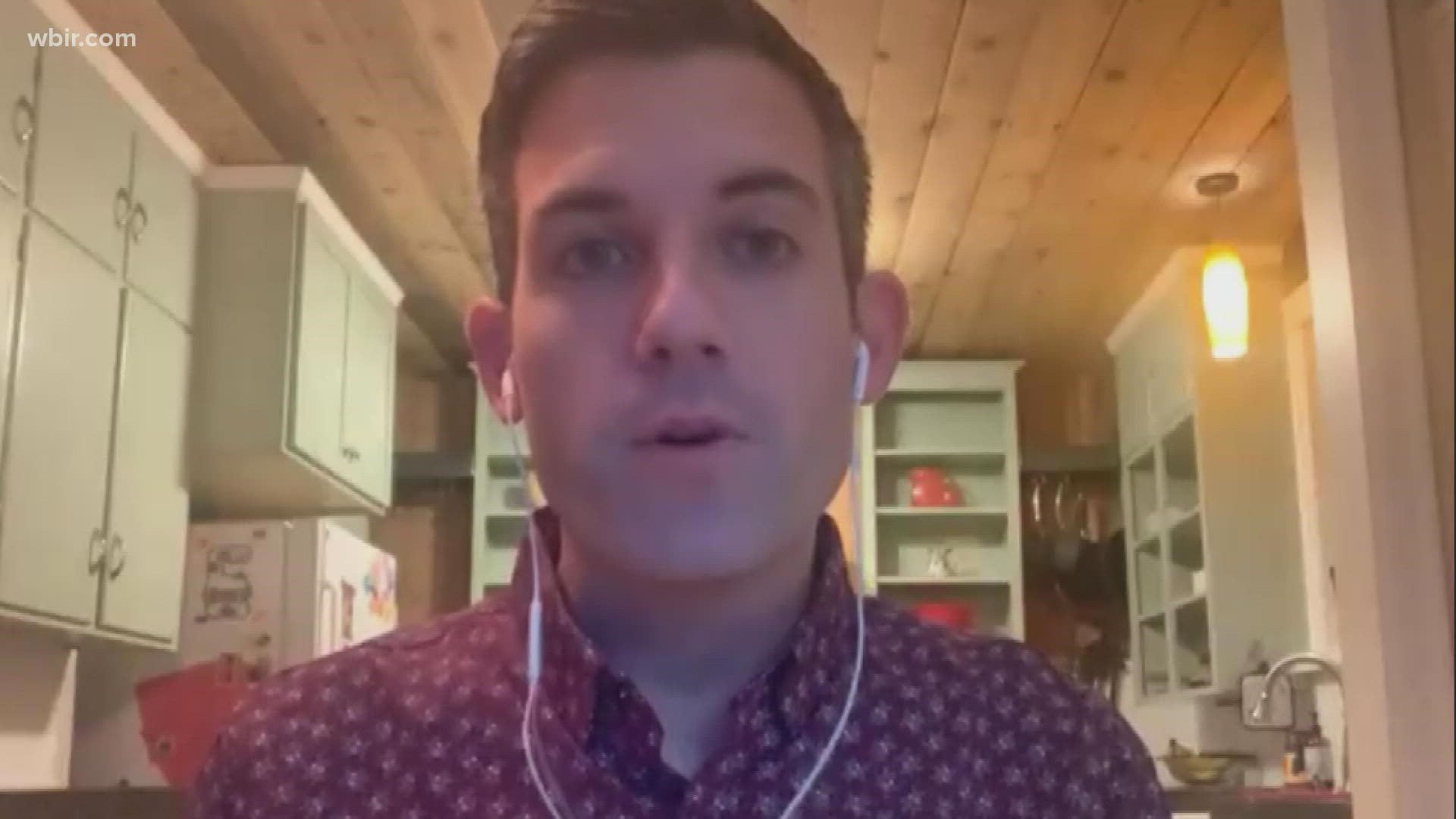KNOXVILLE, Tenn — A record number of Americans quit their jobs in the first half of the year.
More than 4 million people turned in their resignations, calling it quits on workplaces that no longer work for them.
"[COVID-19] just gave me so much time to think about what I wanted to do," Brent Waugh said.
Waugh left his leadership role at a Knoxville non-profit this summer for a job at a university across the country.
It offered more money and better benefits with long-term remote opportunities.
"In my previous role I was very tied to being places in-person. When you work for a non-profit it's about being with people, so this role really allows me flexibility to work from wherever I am whether it be the west coast or Knoxville," he said.
As pandemic life begins to normalize, many are leaving their jobs in search of ones that better fit their needs.
Allison Lester says she made the tough decision to leave the WBIR newsroom and journalism after 13 years.
"When my life changed my career had to change with it, and when it couldn't then it was well, change your career," she said.
Her new role at a local public relations firm allows her to work from home most days and spend more time with her family, something her previous job in a newsroom couldn't offer.
The newly-married stepmother wrote about her decision in a recent blog post and started receiving messages from people all over the country.
"Probably over 100 people have reached out and said the same thing," Lester said.
Companies in industries across the board are experiencing a mass exodus of employees.
41% of workers worldwide say they are considering quitting their jobs for more money, more flexibility, and more happiness.
Jessica Locke-Russell started working remotely last spring when her employer had to comply with federal COVID-19 restrictions.
WACKER, a global chemical production plant based in Bradley County, now has a permanent policy that gives employees the choice to work a hybrid schedule.
The single mother calls it a gamechanger and says she is staying with her company.
"It would be very difficult for me to transition into full-time going back to work, and it's definitely something I think companies are acknowledging. They should listen to their employees and WACKER, I feel like, to an extent has," Locke-Russell said.
As employers scramble to figure out how to incentivize workers to get them to stay, some have already made up their minds.
"We've learned so much about the way we can work and make our lives easier in some ways, and so it was hard for me to just ignore that," Lester said.

